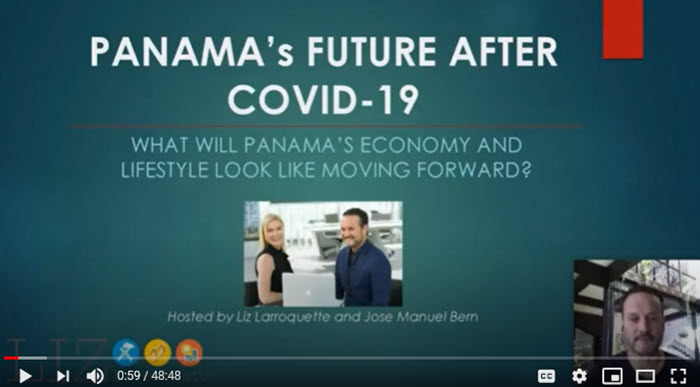This is a great presentation by Jose Manuel Bern, one of Panama’s largest developers. Hosted by Jose and a friend of mine, Liz Larroquete they held a webinar this week and I am glad to say I participated. Jose speaks from the heart as his father, Mother and Brother were all exposed to the virus. It is almost 50 minutes long but you will find this of interest if Panama is on your radar.
Click on the picture above to watch.
Here is the respose to the webinar Liz sent me. Response to “Panama’s Future After Covid – 19”
Recently we hosted a webinar with Jose Manuel Bern of Empresas Bern, one of the most respected business leaders in Panama, speaking on a variety of topics ranging from his father’s fight with the COVID-19 virus to how Panama might look after the country returns to some kind of new normal. The webinar was very well received, and we were flooded with questions. Unfortunately, we did not have enough time to answer them all, so I conferred with Jose Manuel and will attempt to provide clarification here. If you’d like to see the webinar it is available on YouTube via this link: https://youtu.be/DOjSExvx19M
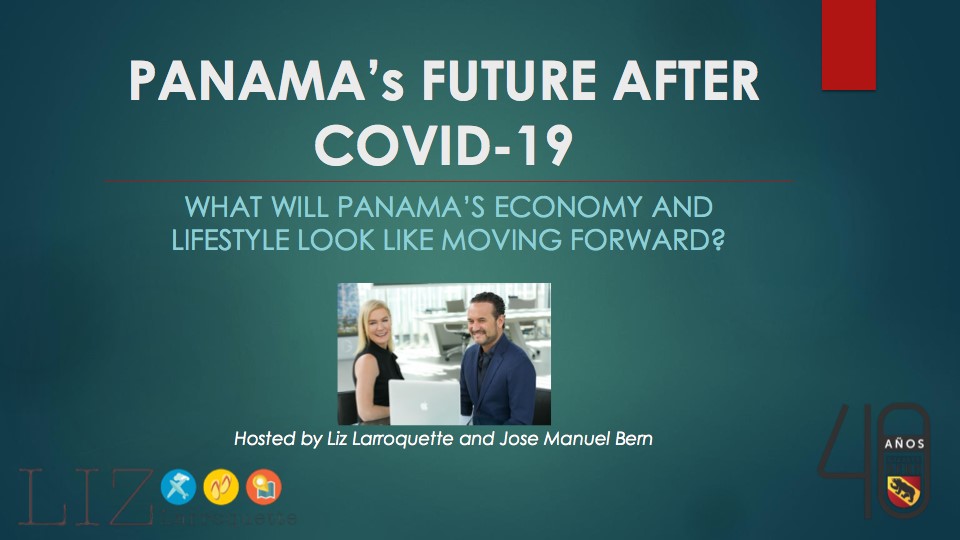
I have grouped the questions into categories so if you asked a specific question, the answer may not be a direct response, but one that provides information on your topic along with additional facts someone else may have asked. If you are not satisfied, you may always contact me directly.
We received several comments—all written in Spanish—that expressed the webinar should have been conducted in Spanish. This webinar was the second one Jose Manuel had done and the first was, of course in Spanish. I am sorry if that was not adequately communicated. We had registrants from around the world and English is the official language for international communication.
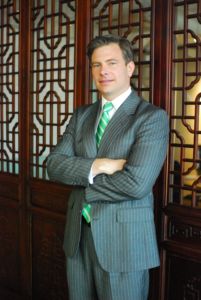
By far, we received the most questions about health care, access to care, health insurance in Panama and the hope of eventually being able access US Medicare in Panama. Jose Manuel noted, after more than three years without having a US Ambassador to Panama, a nomination had been made. Erik P. Bethel of Miami will begin the confirmation process as soon as the nomination has been made official. Jose Manuel was happy to say Bethel was not a politician or a career foreign diplomat, but a businessman and he hoped to be on the new Ambassador’s agenda as soon as he is confirmed and officially in Panama.
Bethel recently completed a term at the World Bank, and he is a specialist on emerging Latin American markets. His focus has been minerals such as the large copper mine in Panama. He also has worked in private equity firms, has lived in Mexico and Brazil and speaks English, Spanish, Portuguese and Mandarin. It will be interesting to see how this will impact Panama.
US Medicare Options in Panama Unlikely
Working through the US Embassy in Panama, Jose Manuel said he hoped to have the US Government consider allowing US citizens to access Medicare in Panama, but that will certainly be an uphill battle. One can make a strong case that since healthcare in Panama is drastically less expensive, the US Government would save money by paying for healthcare in Panama. However, the US government will also want to protect the local health care systems, pharmaceutical and insurance companies and probably will not allow Medicare to be accessed in Panama.
If that remains the case, foreign nationals will need to pay out of pocket for health care when living in Panama. While it sounds good that every US citizen aged 65-years and over is covered by Medicare, it is complicated and costly. There are up to $458 in monthly premiums required to be paid, just for the most basic coverage. There are also a wide variety of deductibles with lots of moving parts for prescriptions and other services. Healthcare is very expensive in the United States and Medicare pays only 80% of the allowed amount, leaving the balance of 20% for the individual to cover. Supplemental policies are available and average an additional $200 a month. Prescription costs are much lower in Panama than in the United States.
Jose Manuel noted he was working to provide a group Panamanian healthcare policy for Bern property owners which would come as part of the purchase, with an option to cover pre-existing conditions. This was mentioned as he explained he was also working to provide condominiums as part of a special section for Independent Senior Living in the new Generation Tower residential complex in Costa del Este.
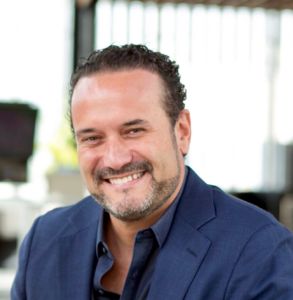
Utilizing Technology for Safety
The units in the Independent Senior Living program would capitalize on existing technology such as the Apple Watch which can provide on-going hospital-quality EKG readings, as well as oxygenators and medical alerts devices. Physicians and registered nurses would be located in Generation Tower and would oversee the medical needs of the residents.
Jose Manuel also pointed out a second Johns Hopkins International affiliated hospital should be completed by the end of 2020 and that it was located steps from Generation Tower and the Arcadia residential project. The hospital, along with a sister hospital in Punta Pacifica, will both be accredited by the US Joint Commission, the same gold-standard for all US-based facilities. Both facilities, given the drastic difference in cost will continue to provide options for individuals seeking medical tourism from the United States and around the world. There continues to be robust interest in Arcadia and Generation Tower in terms of growth in medical tourism.
Access to healthcare in Panama peaked with COVID-19 cases last week and at the highest need, ICU capacity was at 60%. He pointed out his father, Herman Bern, Sr., was in an ICU section which had empty beds and that adequate ventilators were available. The government increased hospital bed capacity by building a field hospital by the airport and converting one of the Bern hotels into a hospital. A second Bern hotel has been used as a dormitory for medical personnel. He said there was a waiting list for rooms so the Bern family is considering donating the use of a third hotel. Essentially, everyone who needed care because of COVID-19 had access and new patients continues to receive health care.
Testing, Testing, Testing!
Testing continues to be the most important factor in Panama pulling out of the COVID-19 crisis. Currently, Panama’s numbers are high because testing is widely available. Jose Manuel said tests were being conducted in high numbers, in part because of the Gorgas Research Institute located near the Panama Canal. Named after the American doctor, William Crawford Gorgas who eliminated yellow fever and malaria during the construction of the Panama Canal, the Institute, which normally works with tropical diseases, is producing test kits in adequate numbers.
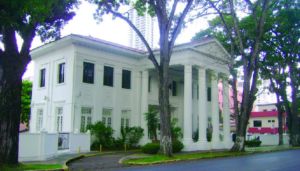
There were several questions about when Panama might re-open for business and if the very strident measures taken to control COVID-19, had been “too Draconian” for the economy. Jose Manuel pointed out lessening the restrictions on movement in Panama would come about slowly. Tocumen International Airport will remain closed until at least May 23rd and he thought Copa Airlines, which is based in Panama, may start flights as early as June 1.
Everyone is required to wear face masks when they are out for groceries, gasoline or medications and men can now go out for two hours only on Tuesdays and Thursdays. Women are allowed out for two hours Monday, Wednesday and Friday and only essential workers are allowed to leave their homes on the weekend.
Uniquely Positioned to Rise
Jose Manuel agreed these were very difficult measures, but said Panama was in a unique position to emerge from COVID-19 more successfully than any other Latin American country. The Panama Canal continues to operate 24/7 and returns more than a billion dollars to the economy. Halting traffic through the canal is not expected as good need to continue moving. The banks are allowing forbearance on mortgages, car loans and credit card payments to help the middle class manage during the crisis.
He also said the Panamanian government had gone to the International Capital Market to issue bonds, payable in 35 years, in the amount of $2.5 billion to cope with the crisis. With Panama’s excellent credit, the fund offered up to $7.5 billion, but Panama said it wanted to be safe and that there was no need to go into further debt. Jose Manuel stressed maintaining good credit was vital and that Panama was scheduled to become the “richest” Latin American country in 2021.
High Copper Prices
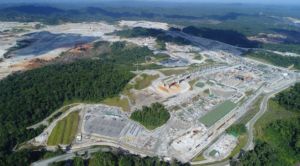
The lack of dependency on oil prices and the upswing in copper usage also plays in Panama’s favor according to Jose Manuel. Countries who need higher oil prices to balance their budget will be hard hit during the crisis because of low demand and low prices. Panama has one of the world’s largest copper mines and copper prices continue to have high demand. This should continue as copper is heavily used in everything from electric cars to construction projects.
Without question there will be difficult times in Panama as a result of the COVID-19 pandemic. Jose Manuel explained that, unlike most other countries, Panama had faced a similar crisis when the United States invaded Panama in 1989 during Operation Just Cause, when a dictator was deposed. The approximately two-month affair left Panama needing to “start over”. Jose Manuel said Panamanians knew how to rebuild.
Future Bern Properties
Additional questions were asked about future Bern projects including on the beach and in Casco Viejo. Currently, the focus remains on Costa del Este, but both beach properties, Casa Bonita and Royal Palm, have lovely units available with extraordinary financing. Not only are prices being reduced during the crisis, both buildings are being closed out.
Jose Manuel said the government was looking at every possible incentive to stimulate theCosta del Este economy including possible tax abatements on property, but he thought the sales tax might need to be increased. Panama increased the sales tax approximately 15 years ago from 5% to 7% and his guess was it would need to go to 9% to help after the COVID-19 crisis.
Herman Bern, Sr.
In good news, Jose Manuel said he expected his father to be released from the hospital in 10 days and that he was extremely grateful for what appears to be a positive outcome for the man who started Empresas Bern 40 years ago. “If we would have been in Spain or Italy, they would have pulled the plug,” said the younger Bern. “It’s hard for me to wrap my brain around that, but here in Panama we must take care of our people and we are prepared to do that.”
Thanks to everyone who attended the webinar and hopefully this has provided more information on the subjects of higher interest. We are planning another webinar soon and hope you will be able to join us! I will keep you posted.
